After going through this discussion, I'm led to believe the option to attach to the same VM, by default has been disabled in OpenJDK11.
I'm trying to upgrade a java agent to OpenJDK11, during the test cases when VirtualMachine.attach(pid) is called I see it failing with below error. What is the correct way to deal with this situation?
Complete stack trace:
java.io.IOException: Can not attach to current VM
at jdk.attach/sun.tools.attach.HotSpotVirtualMachine.<init>(HotSpotVirtualMachine.java:75)
at jdk.attach/sun.tools.attach.VirtualMachineImpl.<init>(VirtualMachineImpl.java:48)
at jdk.attach/sun.tools.attach.AttachProviderImpl.attachVirtualMachine(AttachProviderImpl.java:69)
at jdk.attach/com.sun.tools.attach.VirtualMachine.attach(VirtualMachine.java:207)
at org.kantega.notsoserial.WithAgentIT.attachAgent(WithAgentIT.java:76)
at org.kantega.notsoserial.WithAgentIT.attackShouldBePreventedWithAgent(WithAgentIT.java:47)
at java.base/jdk.internal.reflect.NativeMethodAccessorImpl.invoke0(Native Method)
at java.base/jdk.internal.reflect.NativeMethodAccessorImpl.invoke(NativeMethodAccessorImpl.java:62)
at java.base/jdk.internal.reflect.DelegatingMethodAccessorImpl.invoke(DelegatingMethodAccessorImpl.java:43)
at java.base/java.lang.reflect.Method.invoke(Method.java:566)
at org.junit.runners.model.FrameworkMethod$1.runReflectiveCall(FrameworkMethod.java:50)
at org.junit.internal.runners.model.ReflectiveCallable.run(ReflectiveCallable.java:12)
at org.junit.runners.model.FrameworkMethod.invokeExplosively(FrameworkMethod.java:47)
at org.junit.internal.runners.statements.InvokeMethod.evaluate(InvokeMethod.java:17)
at org.junit.runners.ParentRunner.runLeaf(ParentRunner.java:325)
at org.junit.runners.BlockJUnit4ClassRunner.runChild(BlockJUnit4ClassRunner.java:78)
at org.junit.runners.BlockJUnit4ClassRunner.runChild(BlockJUnit4ClassRunner.java:57)
at org.junit.runners.ParentRunner$3.run(ParentRunner.java:290)
at org.junit.runners.ParentRunner$1.schedule(ParentRunner.java:71)
at org.junit.runners.ParentRunner.runChildren(ParentRunner.java:288)
at org.junit.runners.ParentRunner.access$000(ParentRunner.java:58)
at org.junit.runners.ParentRunner$2.evaluate(ParentRunner.java:268)
at org.junit.runners.ParentRunner.run(ParentRunner.java:363)
at org.junit.runner.JUnitCore.run(JUnitCore.java:137)
at com.intellij.junit4.JUnit4IdeaTestRunner.startRunnerWithArgs(JUnit4IdeaTestRunner.java:68)
at com.intellij.rt.execution.junit.IdeaTestRunner$Repeater.startRunnerWithArgs(IdeaTestRunner.java:47)
at com.intellij.rt.execution.junit.JUnitStarter.prepareStreamsAndStart(JUnitStarter.java:242)
at com.intellij.rt.execution.junit.JUnitStarter.main(JUnitStarter.java:70)
